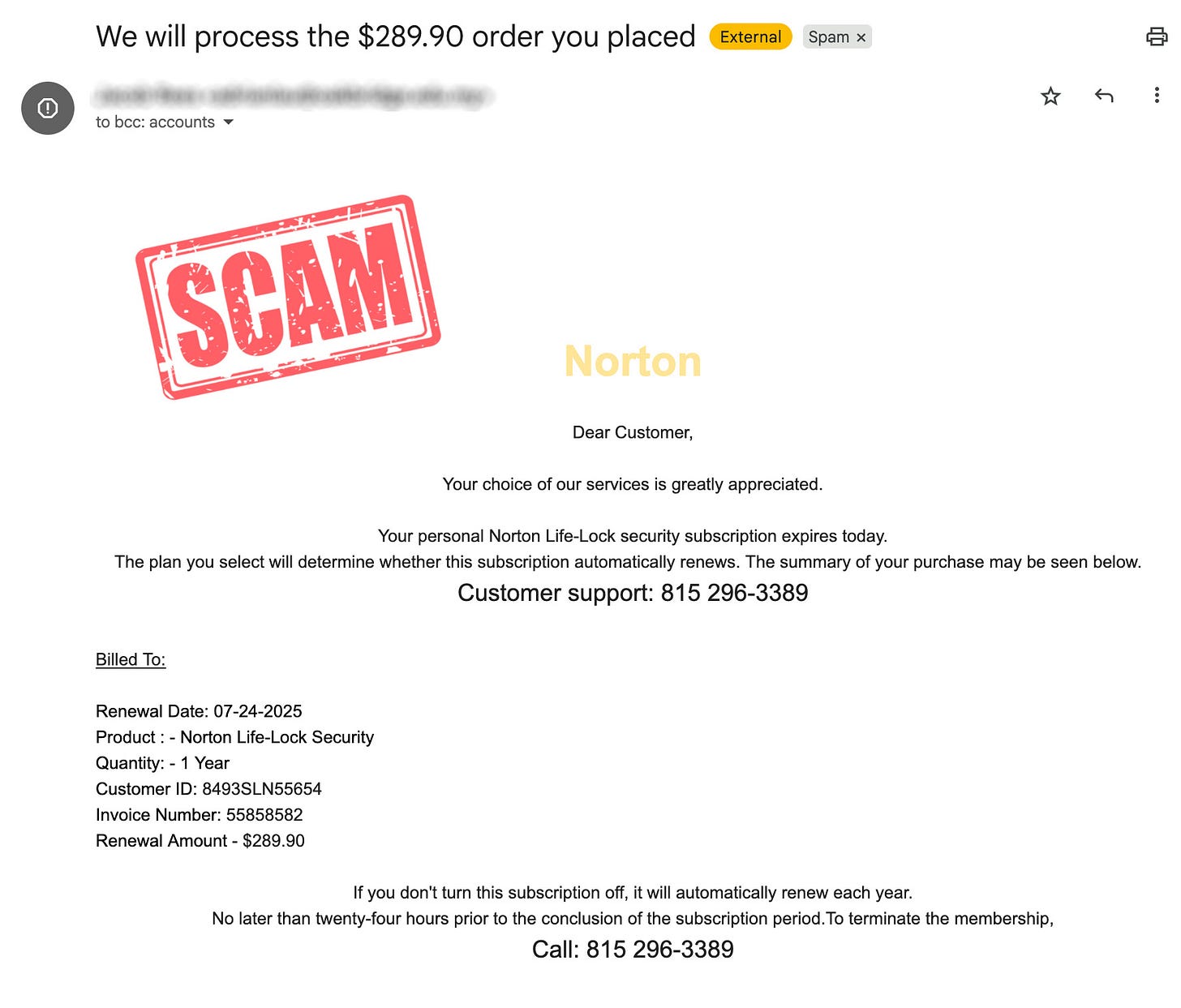Norton Subscription Renewal Scams
Ruse to get You to Call Fake Support Number
tl;dr
Email purporting to be from Norton claims that you are set to be charged several hundred dollars for a yearly security subscription. The email is not connected to Norton. It is a scam designed to trick you into calling a number and giving sensitive information to criminals.
Overview
Inboxes are currently being hit by emails claiming that you are about to be charged several hundred dollars for a yearly Norton Security subscription renewal. The emails appear to be invoices for the charge and may include company branding and other details designed to make them appear genuine.
No Connection To Norton
The emails have no connection to Norton Security software, and you have not been charged the stated fee. The email is a scam designed to trick you into divulging your personal and financial information to criminals.
“Support Number” Connects You to Scammers
Unlike other types of phishing, these scams don’t try to get you to click a link. Instead, they try to fool you into calling a bogus customer support number.
The scammers hope that you will call the number because you are concerned that you have been charged a hefty fee for an unwanted subscription.
If you do call, you will be answered by a scammer posing as a “helpful” Norton staff member. The scammer will claim that a mistake has been made and promise you a full refund. You will be asked to provide your credit card details and other personal information to process the refund.
The scammers can then use the information you provided to commit credit card fraud and identity theft.
Alternative Versions Target Other Subscription-Based Services
While this example claims to be from Norton, alternative versions may target other subscription-based services such as McAfee, Amazon Prime or Adobe. Details such as the cost of the supposed renewal may vary in different incarnations of the scam.
Verify Unexpected Subscription Renewal Notices
If you receive an unexpected subscription renewal notice, check its veracity before responding. See if the fee has really been taken out of your bank account. If you have an account with the company named in the supposed renewal notice, log in to check for any messages about recent charges.
If you need to query a charge or renewal, please contact the company using the details listed on their official website, rather than calling a number provided in an unsolicited email.



